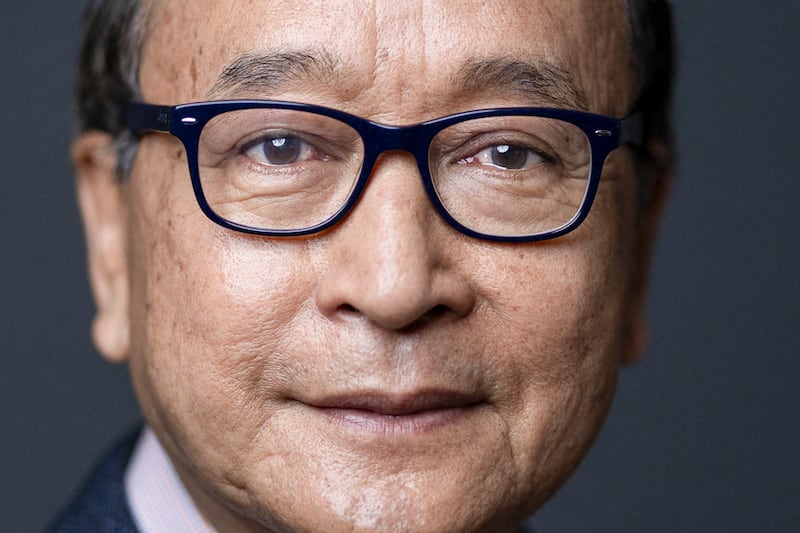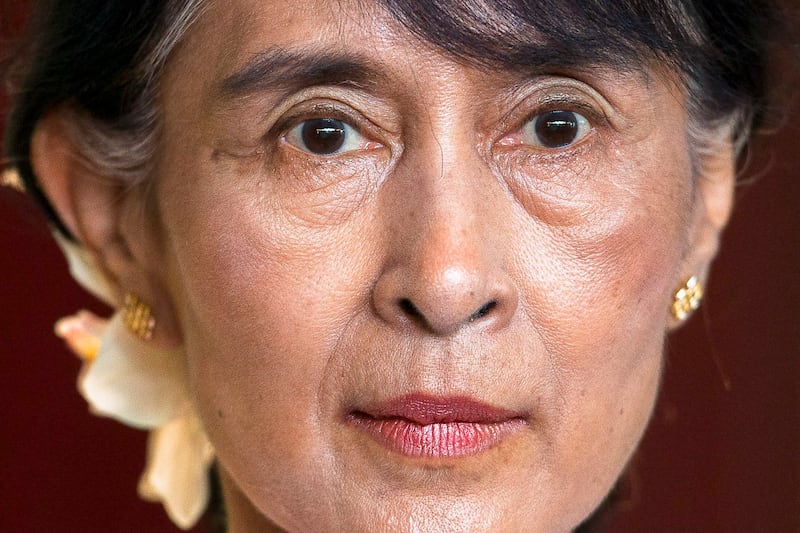A decade ago, Southeast Asia seemed poised for democratic transformation, spearheaded by three icons: Myanmar’s Aung San Suu Kyi, Cambodia’s Sam Rainsy and Malaysia’s Anwar Ibrahim.
Suu Kyi’s National League for Democracy was on the cusp of a historic election victory, potentially gaining entry into government for the first time in the army-run nation.
Sam Rainsy’s Cambodia National Rescue Party had narrowly lost to the ruling party in the 2013 elections, but momentum hinted at a possible win at the next ballot.
Meanwhile, Anwar’s People’s Pact coalition won the popular vote in Malaysia’s 2013 elections, marking the start of a new political era. During a late 2013 visit, Sam Rainsy suggested in a meeting with his fellow pro-democracy icons that they should “work together to promote democracy in our region.”
Fast forward to today, and all three have either fallen from power or seen their legacies tarnished—and the region's democratic transformation now seems more distant than ever.

Suu Kyi, ousted in early 2021, saw her international reputation go up in smoke for her defense of the military's genocide against her country’s Muslim Rohingya minority.
Sam Rainsy went into exile in 2015 and his party dissolved two years later as the ruling Cambodian People’s Party tightened its authoritarian chokehold. Rainsy now writes financial updates with little hope of returning to Cambodia.
Anwar became Malaysia’s prime minister in 2022 but has abandoned his once-professed liberal, secular ideals. His government has launched “lawfare” campaigns against opponents.
In August, Malaysian prosecutors charged Muhyiddin Yassin, the leader of the opposition, with sedition for complaining that the king hadn’t asked him to form a government last year.
Anwar’s pluralist appeal has gone out of the window.
He’s unpopular with Malays, he has defended a deputy prime minister accused of corruption, his speeches are flecked with anti-Semitism and anti-Western vitriol, and he has drawn Malaysia closer to China and Russia.
Anwar visited Moscow this month and now declares support for China’s “reunification” of Taiwan.
"Anwar had been a favorite of Western reporters and officials, heralded as a man who could liberalize Malaysian politics," the Economist recently wrote. Since taking power, he has been "a very different kind of leader."
A milder form of tyranny
One shouldn’t mourn the passing of Southeast Asia’s icons, the disappearance of a handful of individuals who were supposed to drag the region by their own sweat and sacrifice into a freer future.
There was too much focus on personalities rather than policies; too much about a single person’s fate to become premier and not on the people they were supposedly fighting for.
Suu Kyi was the National League for Democracy; she was destined to save Myanmar because her father had done the same when Burma emerged from British colonial rule in the 1940s.
Even before Sam Rainsy’s party was dissolved, it had become cleaved between the factions loyal to him and another leader. They, too, saw themselves as the embodiments of salvation for an entire country.

As Suu Kyi and Anwar showed, you sacrifice your entire life in exile, imprisonment, scorn and harassment, and once you finally attain power, you believe you damn well need to stay there, whatever it costs.
After all, losing power means a return to tyranny and the bad old times—so a milder form of tyranny is justifiable to prevent that.
Southeast Asia isn’t unique; the worst leaders are those who have taken a long walk to power.
Seldom does a revolutionary not become a counter-revolutionary. Rarely does the liberal in opposition remain a liberal in power.
Suu Kyi gambled – badly – that publicly defending the military’s genocidal actions against the Rohingya was the price worth paying to prevent a military coup. She should sacrifice up the few for the apparent benefit of the majority, she reasoned.
The end of idolatry should allow Southeast Asian democrats to focus on strengthening political institutions rather than idolizing individuals.
A new example in Thailand
The region should look at what’s happening in Thailand.
Unique in Southeast Asia, Thailand’s progressive movement has created a pro-democracy “archetype”— someone young, Western-educated, good-looking, conversant in English, ideally with a business background, and very social media savvy.
Pita Limjaroenrat, who employed this archetype to make his Move Forward Party the country's largest at last year's elections, was more of a character than an icon.
Pita played this role with Move Forward, but it was the same character that Thanathorn Juangroongruangkit played before him with the Future Forward party, Move Forward’s predecessor party, and that Natthaphong Ruengpanyawut now plays as leader of People's Party, the successor to Move Forward.
This is a clever tactic. If the leader is disbarred from politics, as Thanathorn and Pita were, then someone else can easily assume the role, as Natthaphong has done.
If the party is dissolved, as Future Forward and Move Forward were, you make a new one led by the same character with the same script.
This prevents a party from being consumed by one person – à la Suu Kyi. It turns the dissolution of a party into an inconvenience, instead of the death knell of an entire movement, as was the case with Sam Rainsy and the Cambodia National Rescue Party.

It means that if the leader wins power, he knows he is there because of the script he has been given, not the one he’s written. The rest of Southeast Asia would be better off developing their own archetypes, not waiting for the next icons to appear.
Neither is the end of Southeast Asia’s pro-democracy icons a bad thing for the West, which was too quick in the 1990s and 2000s to put its faith in a few personalities being able to drive democratic change in the region.
Suu Kyi’s Western claqueurs didn’t look too carefully into her own thoughts on Buddhist nationalism, nor did many people stop and consider that Anwar cut his political teeth as deputy to Mahathir Mohamad in the 1990s and might have learned a thing or two from the Malaysian Machiavelli.
RELATED RFA COMMENTARIES
[ COMMENTARY: Laos' ASEAN chairmanship propels foreign minister to PM contenderOpens in new window ]
[ COMMENTARY: Weak governance, poor economy drive the hollowing out of LaosOpens in new window ]
As the West usually does, it judged these icons’ actions based on their reputations, not the other way around.
As the late Christopher Hitchens once noted: “The rich world likes and wishes to believe that someone, somewhere, is doing something for the Third World. For this reason, it does not inquire too closely into the motives or practices of anyone who fulfills, however vicariously, this mandate.”
Devoid of icons, Western governments now need to find better ways of helping the region fulfill this mandate. But this will be more challenging, and the West has grown indolent in supporting real political change.
David Hutt is a research fellow at the Central European Institute of Asian Studies (CEIAS) and the Southeast Asia Columnist at the Diplomat. He writes the Watching Europe In Southeast Asia newsletter. The views expressed here are his own and do not reflect the position of RFA.
